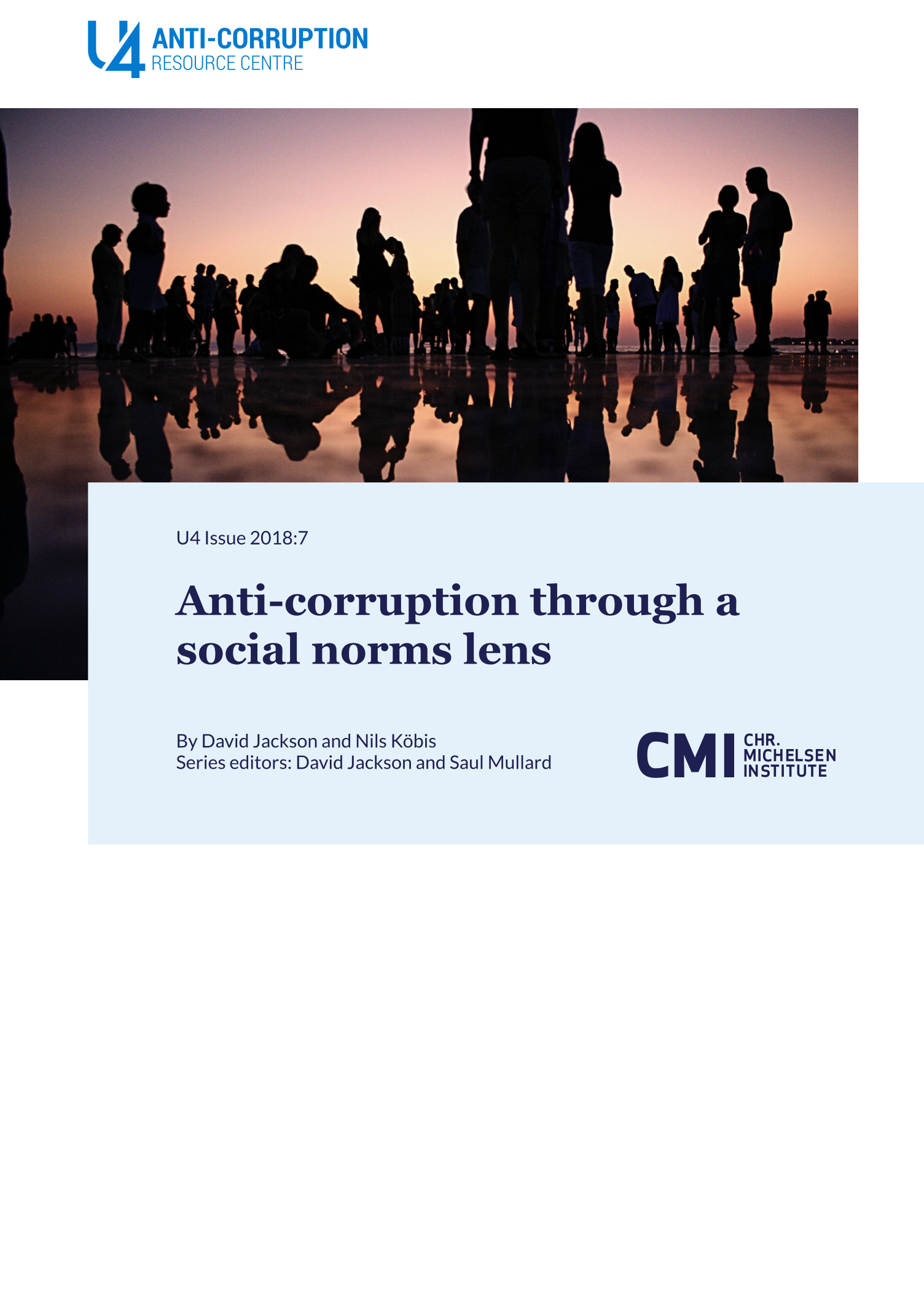Main points
- Collective behaviours like corruption are sustained by social norms, which are rooted in shared attitudes and beliefs. Understanding social normative pressures in a given context can help practitioners design interventions to relieve those pressures, allowing collective behaviour to change.
- Four main types of social normative pressures help explain why corruption persists, and why standard anti-corruption initiatives often fail: sociability and kinship pressures, as well as horizontal and vertical pressures within organisations.
- A stepwise process to diagnose social normative pressures can use tools such as a literature review, interviews, focus groups, vignettes, and others. Often the best choice is a combination of methods.
- After recognising which normative forces sustain a given corrupt practice, practitioners should tailor their anti-corruption intervention accordingly. Sample strategies are presented for addressing each of the four main types of pressure, with suggestions for one or more methods to support each strategy.
- Strategies should be deployed within specific contexts where there can be intensive engagement, such as within a community or sector. A locally grounded, locally led intervention is more likely to succeed and less likely to have unintended side effects.


